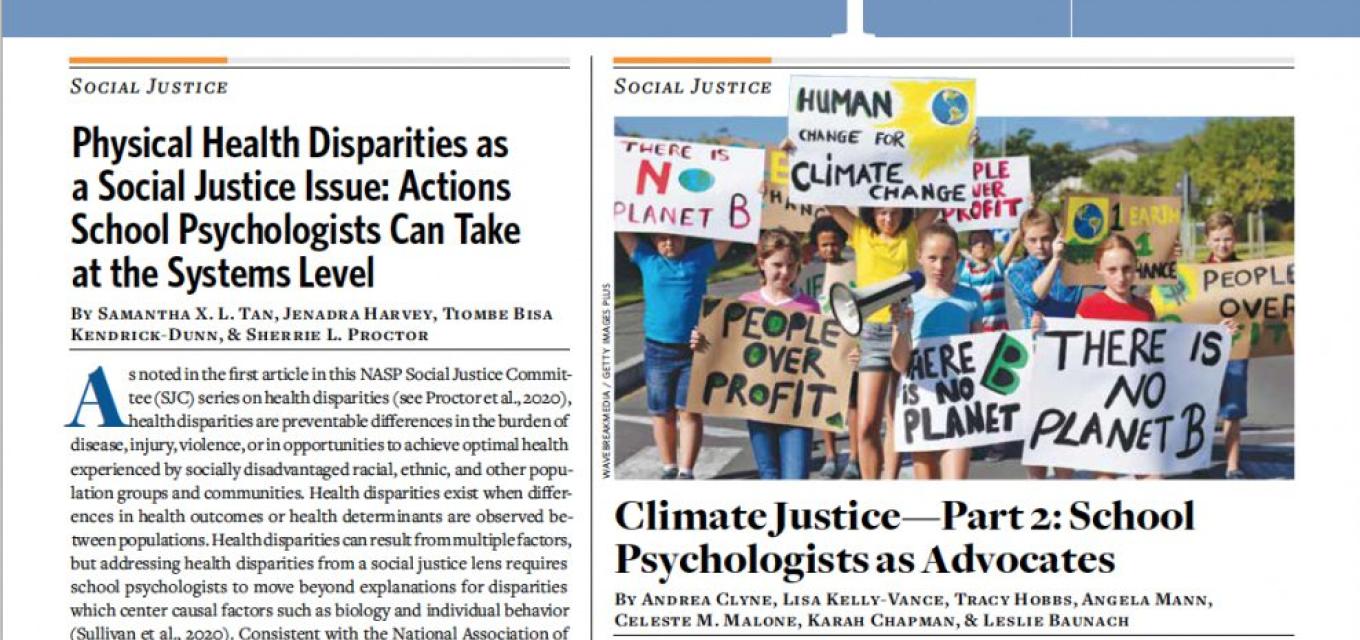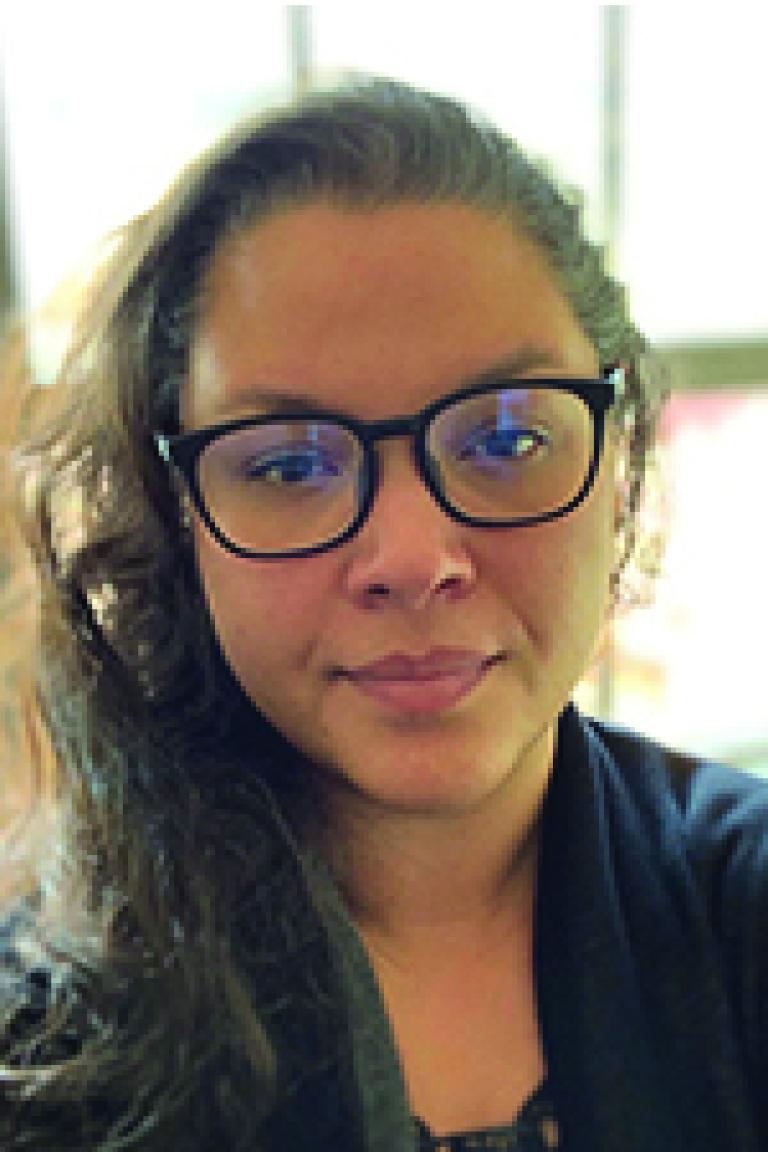2021 Spring / Summer

Helping schools overcome COVID-related equity issues
Helping schools overcome COVID-related equity issues.
In the midst of a pandemic and a long-brewing social reckoning, researchers from the Department of Educational Psychology saw a pragmatic opportunity to apply their expertise in helping schools inject equity into their student support structures.
“We were motivated as a program to respond to observed and articulated needs in our professional community surrounding all of the questions and confusion professionals have about how to support students right now,” says Birkmaier Education Leadership Professor Amanda Sullivan.
Sullivan explains that Minnesota has historically been a leader in developing scholarship and practice central to advancing multi-tiered systems of support—MTSS—a system many schools use to align resources, programs, and practices to support learners, including those for whom general curriculum and supports may not be adequate. In fact, a lot of the foundational innovations of MTSS came out of educational psychology’s special education and school psychology programs.
There has also been a major effort in school psychology to intensify its focus on equity and racial justice both in its scholarship and in resources for students, community partners, and graduate educators in school psychology across the country. Much of this is in response to the challenges of COVID-19 and to the events following George Floyd’s death and the many instances of police violence since.
Sullivan’s areas of expertise put her at the forefront of this effort. “My work all relates to issues of structural inequity and bias in education, with a focus on students made vulnerable by opportunity gaps and the ways in which well-intentioned policies and systems may not actually benefit students from minoritized backgrounds,” she says.
To her, coupling MTSS with advancing equity seemed like a perfect fit as COVID-19 was taking a hold on the nation’s educational system.
“In the spring of 2020, we could see that many practitioners and school systems locally and nationally would be turning to MTSS to shore up efforts to provide academic, social, emotional, and behavioral supports and we wanted to be sure that issues of racism and equity were centered in these conversations,” she says.
Thus, Sullivan and several colleagues, including Associate Professor Faith Miller, Senior Lecturer Annie Hansen-Burke, and PhD students Nicole McEverett, Alexandra Muldrew, and Mollie Weeks, worked together to write an article that was published on the front page of Communiqué, the official newspaper of the National Association of School Psychologists (NASP).
“We submitted to Communiqué specifically because it is a primary source of news and information relevant to daily practice, trends, and innovations in the field of school psychology,” says Miller. “The publication is mailed to over 24,000 school psychologists who are members of NASP. We knew that we would have the greatest reach and impact potential with this particular outlet.”
 |
 |
Professor Amanda Sullivan (left) and Associate Professor Faith Miller (right) worked with colleagues to apply MTSS in helping schools address equity issues. |
The article, “Leveraging MTSS to Advance, Not Suppress, COVID-Related Equity Issues,” was published in the September 2020 issue of Communiqué. A follow-up article quickly followed in the November edition. The authors are also involved in local grassroots advocacy—the Minnesota Collective for Educational Equity—to support a statewide equity-centered MTSS initiative.
“These articles were written specifically for Communiqué given our observations and experiences with practitioners, students, and other graduate educators as we grappled with the challenges COVID-19 has created for our communities,” Sullivan says. “We wanted to speak to school psychologists nationally about what we saw as both a challenge and an opportunity to respond to this unique context to support practice and leadership that centers equity as the guiding consideration.”
Miller says these articles are an attempt to push stakeholders to consider how their systems are operating and who they are leaving behind. “Most importantly, we hope to facilitate action and change,” she says.
As an applied and translational researcher, Miller is interested in supporting schools in solving specific problems and providing innovative solutions to issues. “Much of my research has focused on systems-level practices schools can use to better support students’ social, emotional, and behavioral development,” she says. “When we fail to focus on the whole child and the contexts and systems in which they operate, we end up perpetuating these systems of oppression with grievous consequences.”
“Most importantly, we hope to facilitate action and change.”
MTSS is a powerful vehicle for aligning resources and programs to deliver instruction, prevention, and intervention services in schools. “We wanted to ensure that as professionals are doing this work, they are explicitly foregrounding equity and social justice and addressing the disparities in their communities that have been exacerbated during the pandemic so that these efforts didn’t inadvertently create even more harm,” Sullivan says. “We also heavily discourage any processes that result in official or unofficial labeling or categorization of students or assumptions of student deficits. We emphasize that MTSS is about what adults in the system are doing to support learning and wellbeing, never about any perceived limitations on the part of students, families, or communities.”
Miller says her field needs to push these advances in educational practices forward in order to promote more equitable systems. “In our own program, we will continue to engage in advocacy at the national, state, and local levels,” she says. “We will continue to train our students to be change agents who center equity and social justice.”
This work is especially important given longstanding and growing shortages of school psychologists nationally and in Minnesota, where CEHD’s program is the largest of only two in the entire state. “We know that inequities surrounding COVID-19 are exacerbating mental health and social, emotional, and behavioral needs in schools and communities. These shortages undermine schools’ capacity to provide much-needed services and supports,” Sullivan says. “We’re committed to ensuring our graduates are prepared to meet the challenges of this reality and serve as change agents in schools so racial justice and dismantling harmful, ineffective systems are our focus. That’s reflected in our curriculum as well as scholarship and the professional and community engagement of all members of our program community as we all seek to support meaningful change.”
Photos courtesy of Comminique
-Kevin Moe